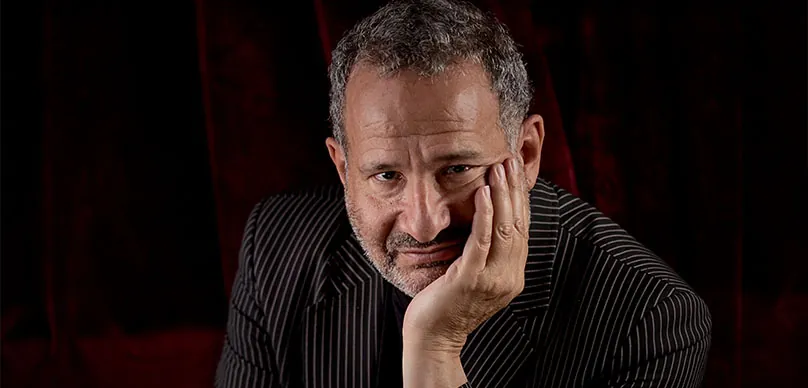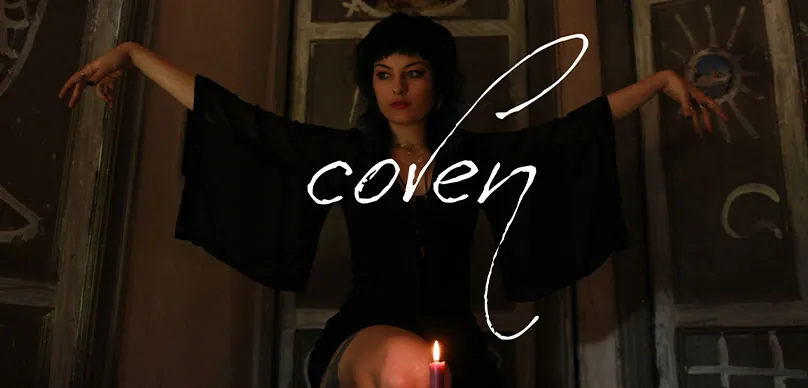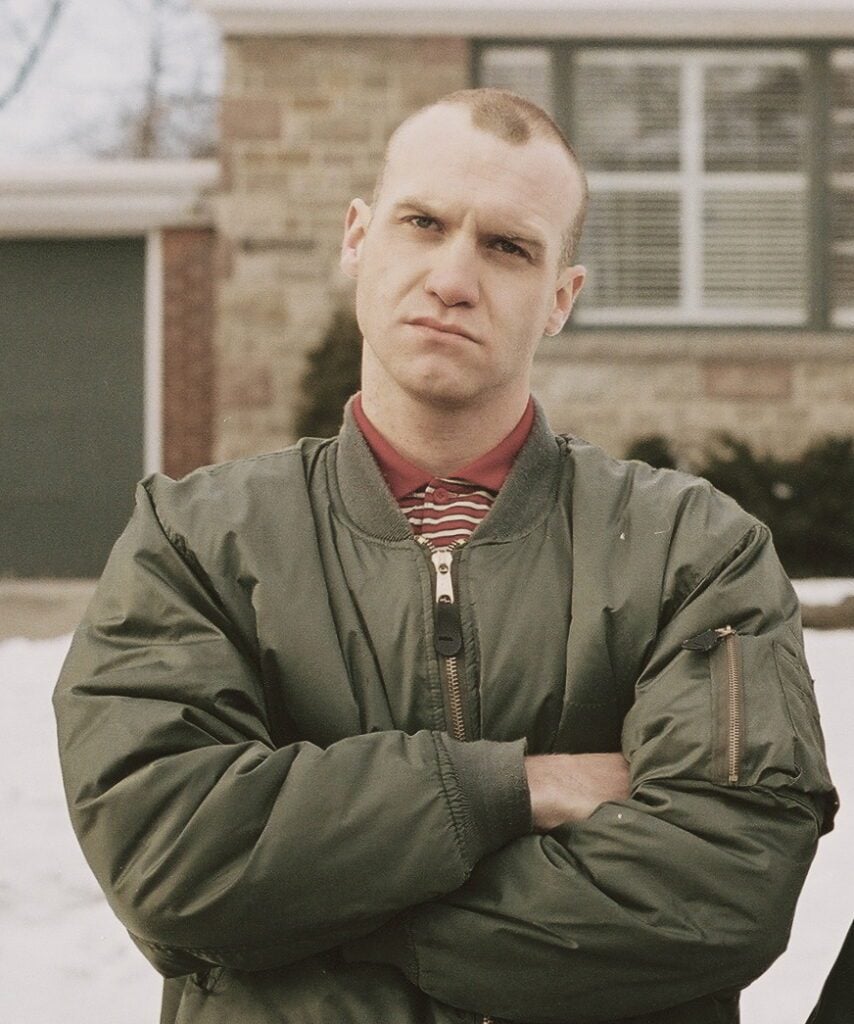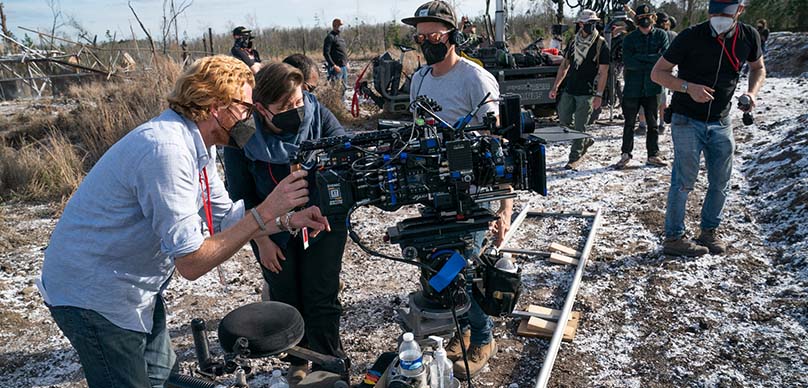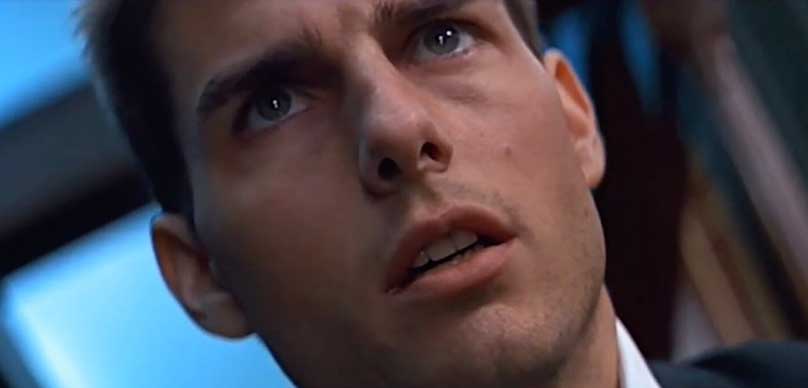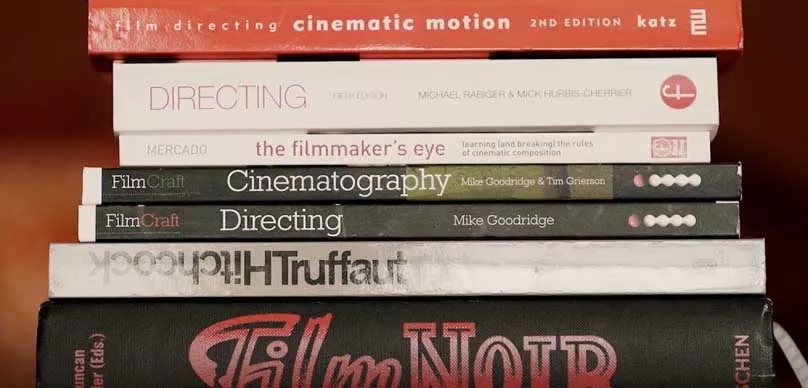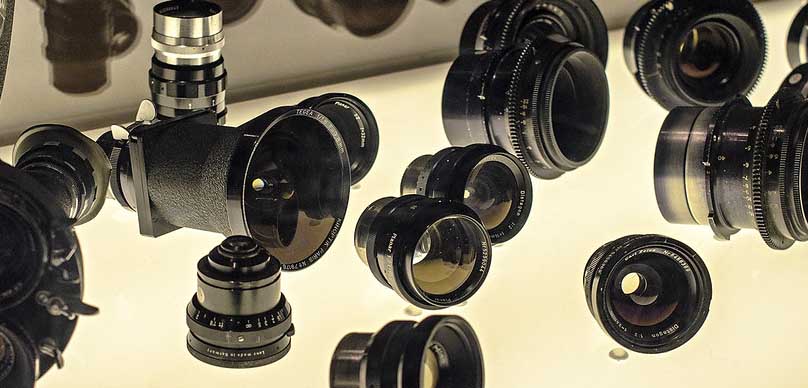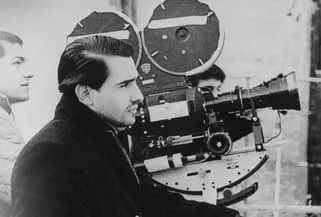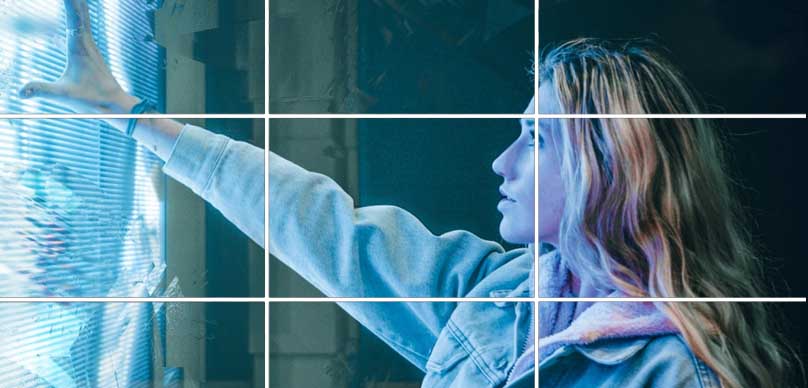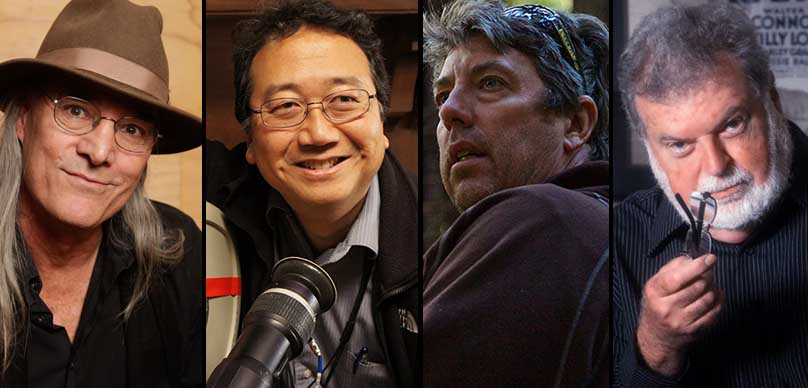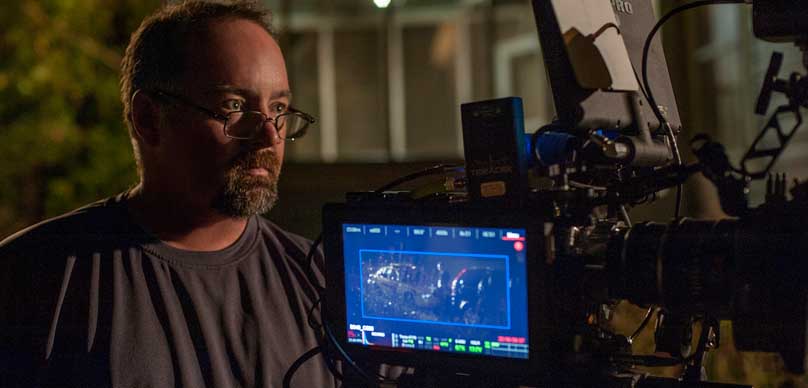Cinematography Podcasts have been, by far, some of my favorite conversations on the Indie Film Hustle Podcast.
From Oscar® and Emmy® winning directors of photography to camera lens specialists to members of the American Society of Cinematographer to lighting legends, we have had some remarkable podcasts about cinematography.
I have gathered together the Top 10 cinematography podcasts from the IFH archives. This list will be updated every few months so keep checking back.
Click here to subscribe on iTunes, Spotify, Stitcher, or Soundcloud.
Today on the show we have Oscar® nominee Jeff Cronenweth A.S.C.
Cronenweth worked as a loader and 2nd assistant before graduating high school, and then enrolled in film school at USC where he studied cinematography. Among his classmates were John Schwartzman and Robert Brinkmann, as well as [director] Philip Joanou.
After graduation, Cronenweth resumed working with his father, joining a core camera team that included operators John Toll and Dan Lerner, and 1st assistants Bing Sokolsky and Art Schwab.
Jeff worked with father Jordan Cronenweth (cinematographer most notable for Blade Runner) as a camera loader and second assistant camera during high school, working his way up to first assistant camera and then camera operator until the mid-1990s.
Moving up to first assistant, Cronenweth began working with Toll, who was just beginning his work as a cameraman, and veteran Sven Nykvist.
The first major motion picture where he acted as a DP was on David Fincher‘s masterpiece Fight Club. Other notable feature films on which he worked as a DP are One Hour Photo, K-19: The Widowmaker, Down With Love, The Social Network, Hitchcock, The Girl with the Dragon Tattoo, and Gone Girl.
Today, my guest is Oscar® nominated prolific cinematographer, accomplished photographer, and member of the American Society of Cinematographers, Dean Cundey A.S.C.
Dean rose to fame for extraordinary cinematography in the 1980s and 1990s. His early start was working on the set of Halloween. Dean is credited as director of photography on five Back To The Future films and Jurassic Park.
Cundey holds over one hundred and fifty cinematography & photography credits for movies, television, and short films. That is no small feat in this business. The man has stayed busy and booked since graduation from film school. That kind of consistency in Hollywood is only doable by having extreme persistence and excellence.
One of the many things he did to stay prepared and on top of his craft was investing into building himself a ‘super van’ or one couple call it a cinematographer’s heaven that contained every equipment (cameras, editings tools, etc.) required to help him get work get and do work easily.
We talk more about Dean joining The Book of Boba and The Mandalorian crew as well.
I can’t tell you how excited I am about today’s guest. I sat down with the legendary and Oscar® Winning Cinematographer Russell Carpenter A.S.C. Russell has been shooting blockbusters for over 40 years and has shot films like Ant-Man, xXx: Return of Xander Cage, Charlie’s Angels, The Negotiator, True Lies, Monster-in-Law and classic 90’s action flicks like Hard Target, The Perfect Weapon, and Death Warrant.
He won the Oscar® for his cinematography on the second highest-grossing film of all time, Titanic. We go down the rabbit hole on shooting Titanic, working with James Cameron, crazy Hollywood stories, how he approaches each project and much more. This episode is a treasure chest of behind the scenes stories and cinematic techniques from the highest levels of Hollywood.
Today on the show we have the legendary and Emmy® Winning cinematographer Michael Goi A.S.C.
Michael Goi has compiled over 70 narrative credits, including films for cinema and television screens such as “American Horror Story,” “Glee,” “Salem” and “The Town That Dreaded Sundown.”
He has received Emmy nominations for “Glee”, “My Name Is Earl” and “American Horror Story.” He was nominated for the American Society of Cinematographers (ASC) Outstanding Achievement Award for the telefilms “The Fixer” and “Judas” and for the pilot “The New Normal” and the mini-series “American Horror Story: Asylum”.
He also wrote and directed the dramatic feature film “Megan Is Missing” about the subject of internet predators, and several episodes of “American Horror Story” and other shows.
Today I welcome back returning champion award-winning cinematographer Suki Medencevic A.S.C. I brought Suki back on the show to discuss Covid-19 and what Hollywood will look like after it passes, how to approach low-budget filmmaking from the cinematography side, and his game-changing cinematography course Light and Face – The Art of Cinematography from IFH Academy.
My guest today has done it all. He’s gone from cinematography on small-budget indie films to $200 million-plus projects which is literally goals for many in this line of business.
Director and cinematographer, Shane Hurlbut‘s thirty-plus experience and success as a storyteller is categorically innovative to the craft and inspiring for other filmmakers.
Shane Co-founded the Hurlbut Academy alongside his wife and business partner, Lydia Hurlbut. Their platform offers professional online filmmaking education and mentoring materials, curated by other filmmakers. This interactive library has collaborated with filmmakers to develop about 50 Courses, 400+ Lessons, and 700+ hours of instruction videos.
Some of the top projects he’s worked on include Drumline, We Are Marshall, Terminator Salvation, Act Of Valor, and Game Of Thrones.
Today on the show we have a legend in the filmmaking blogosphere, award-winning cinematographer Philip Bloom. Philip is a world-renowned filmmaker who, for the past 10 years of his 27-year career has specialized in creating incredible cinematic images no matter what the camera. He started blogging back in the early 2000s before anyone was really doing it. I personally have been following him for years.
Philip even got an opportunity to shoot for the Jedi Master himself George Lucas on the film Red Tails.
Today on the show we have veteran cinematographer Jayson Crothers. Jayson had shot two dozen independent features before he joined the NBCUniversal hit show Chicago Fire in 2013.
After serving as the 2nd unit DoP for 38 episodes during seasons 2 & 3 he was asked to helm the show. Serving as the sole DoP from seasons 4 to 6, he shot 74 episodes of the series for Dick Wolf. He also did additional photography for the backdoor pilot of Chicago Med.
The knowledge to shoot film is dying. There’s nowhere online where you can take a course on how to shoot Super 16mm film. The “workshops” available are extremely expensive and don’t really give you practical knowledge from someone who has actually shot in the field.
On today’s show, Egon and I drop some knowledge bombs on shooting film. So if you ever wanted to know if shoot “real” was an option for your indie feature or short film then perk up those ears.
Today on the show we have the chairman of the legendary Cooke Optics empire. For over 100 years, Cooke has been at the centre of the filmmaking business. We’ve been listening to the community of which we are a part. We lead by introducing new products such as /i Technology, and we remember our success is built on a simple idea – do what the filmmaker needs.
One of the main goals of Indie Film Hustle is to give real-world knowledge and resources to indie filmmakers so they can make a living doing what they love. Film gear is a big part of that equation. I always am on the lookout for the best bang for the buck when it comes to film gear.
I recently began to dip my toes into the world of vintage lenses. Today’s guest Alan Besedin has been running in the filmmaking trenches for years and runs my go-to resource for vintages lenses VintageLensesforVideo.com. I’ve watched every video and read every article on the site. It’s a wealth of info. So enjoy my conversation with Alan Besedin.
Today we are going deep down the cinema lenses rabbit hole. I was lucky enough to sit down and speak to the “Yoda” of cinema lenses Matthew Duclos. Matthew has been working on lenses for most of his life. Most cinematographers in Los Angeles (and around the world) consider him an expert in the field.
I was hearing Duclos’ name on set as far as I can remember so it was a thrill to get to speak and grill Matthew on all things lenses.

